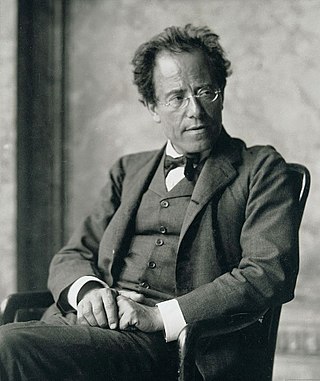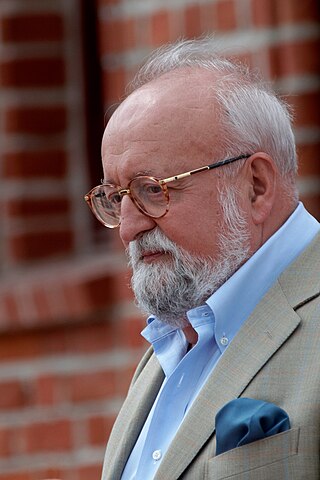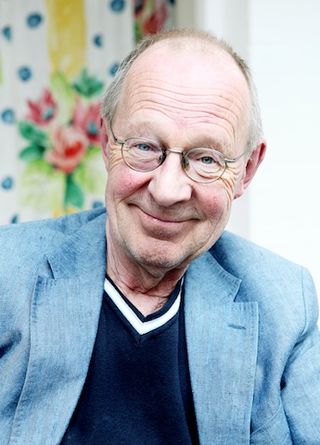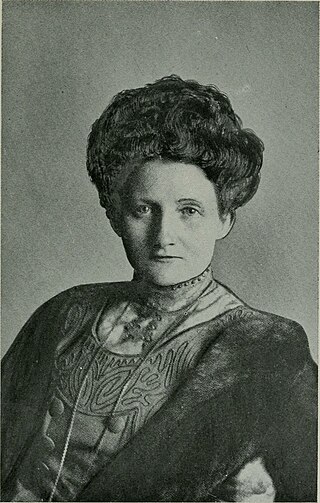Related Research Articles

Das Lied von der Erde is an orchestral song cycle for two voices and orchestra written by Gustav Mahler between 1908 and 1909. Described as a symphony when published, it comprises six songs for two singers who alternate movements. Mahler specified that the two singers should be a tenor and an alto, or else a tenor and a baritone if an alto is not available.

The Bläck Fööss are a music group from Cologne, Germany, started in 1970. From 1973 to 2003 Werner Dies was producer of the music group.
Heidegger Gesamtausgabe is the title of the collected writings of German philosopher Martin Heidegger (1889-1976), published by Vittorio Klostermann.

"Prometheus" is a poem by Johann Wolfgang von Goethe, in which the character of the mythic Prometheus addresses God in misotheist accusation and defiance. The poem was written between 1772 and 1774 and first published in 1789 after an anonymous and unauthorised publication in 1785 by Friedrich Heinrich Jacobi. It is an important work of the Sturm und Drang movement.

The Symphony No. 8 "Lieder der Vergänglichkeit" by Krzysztof Penderecki is a choral symphony in twelve relatively short movements set to 19th and early 20th-century German poems. The work was completed and premiered in 2005. The symphony has an approximate duration of 35 minutes. Penderecki revised the symphony in 2007 by adding a few more poem settings and the piece has expanded to around 50 minutes. Although given the designation Symphony No. 8, it was not actually the final symphony Penderecki completed before his death in March 2020; the Sixth Symphony, begun in 2008, was not completed until 2017.

Bazon Brock is a German art theorist and critic, multi-media generalist and artist. He is considered a member of Fluxus. He was a professor of aesthetics at the Hochschule für bildende Künste Hamburg, the University of Applied Arts Vienna and the University of Wuppertal.
Wolfgang Weyrauch was a German writer, journalist, and actor. He wrote under the pseudonym name Joseph Scherer.
Hebdo- (symbol H) is an obsolete decimal metric prefix equal to 107. It is derived from the Greek hebdοmos (Greek: ἕβδομος) meaning seventh.
Siegfried Obermeier was a German author of historical novels and popular history books. He was editor of The Secret Diaries of Ludwig II of Bavaria 1976. In 1978 he issued his first novel, initially under the penname Carl de Scott, a novelisation of the second life of Judas Iscariot. His Jesus in India book "Starb Jesus in Kaschmir?" made it to the Year Bestseller List of the Spiegel in 1983.
Franz Schubert's best-known music for the theatre is his incidental music for Rosamunde. Less successful were his many opera and Singspiel projects. On the other hand, some of his most popular Lieder, like "Gretchen am Spinnrade," were based on texts written for the theatre.

Hans Peter Korff is a German actor.

Irmgard Schneeberger, also known by her pen name Sandra Paretti was a German writer.

Lothar Zenetti was a German Catholic theologian, priest, and author of books and poetry. In Frankfurt, he was both a minister for young people and a parish priest. He was also active on radio and television. His songs, for example the popular "Das Weizenkorn muss sterben" and "Segne dieses Kind", appear in both Protestant and Catholic hymnals.

Salomo Friedlaender was a German-Jewish philosopher, poet, satirist and author of grotesque and fantastic literature. He published his literary work under the pseudonym Mynona, which is the German word for "anonymous" spelled backward. He is known for his philosophical ideas on dualism drawing on Immanuel Kant, and his avant garde poetry and fiction. Almost none of his work has been translated into English.
Rolf Riehm is a German composer who wrote stage and orchestral works as well as music for ensembles and solo instruments. He began as an oboist and music teacher and was later a professor of music theory at the Hochschule für Musik und Darstellende Kunst Frankfurt am Main for several years.
Peter Rohs is a German philosopher.
Friedrich Lienhard was a German writer and nationalist ideologue.

Lulu von Strauss und Torney (1873–1956) was a German poet and writer. Best remembered for her ballads, she also wrote historical fiction with rural settings in northwest Germany.
References
- ↑ cf. VDI-Nachrichten, 19. April 1933, for Barthel's Transformationszirkel
- ↑ Mein Opfergang durch diese Zeit, 2005, p. 119.
- ↑ Criqui, Fernand: Ein tragisches Elsaesserschicksal: Ernest Barthel, 1954
- ↑ Mein Opfergang durch diese Zeit, 2005, passim
- ↑ E. Barthel, Mein Opfergang durch diese Zeit, 2005, p. 184.
- ↑ Ideologische Mächte im deutschen Faschismus Band 5: Heidegger im Kontext: Gesamtüberblick zum NS-Engagement der Universitätsphilosophen, George Leaman, Rainer Alisch, Thomas Laugstien, Publisher: Argument Hamburg, 1993, ISBN 3886192059